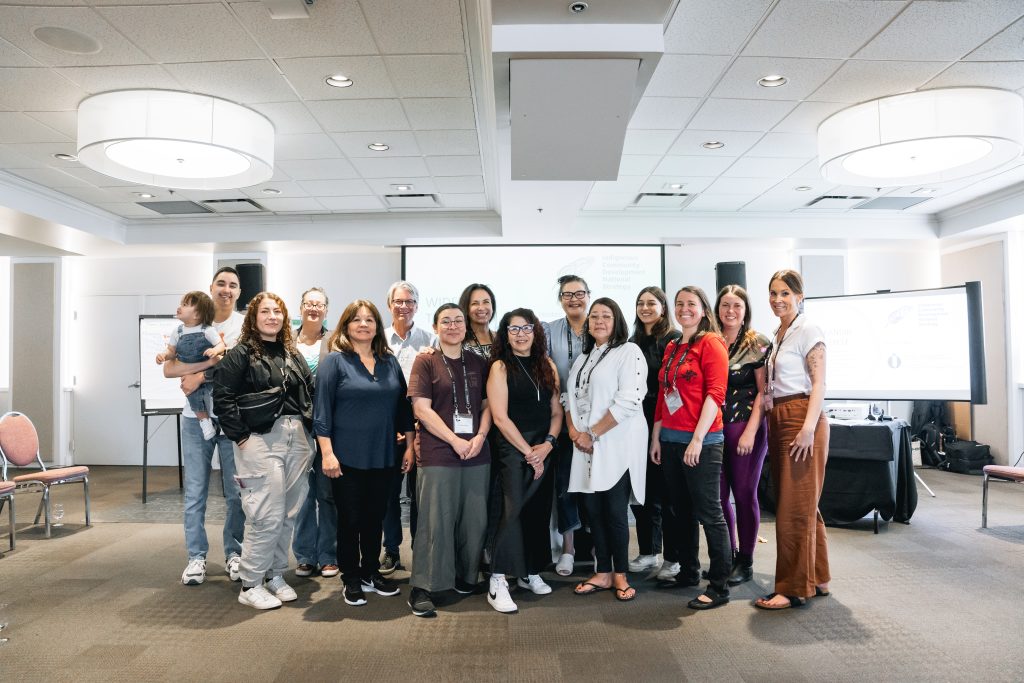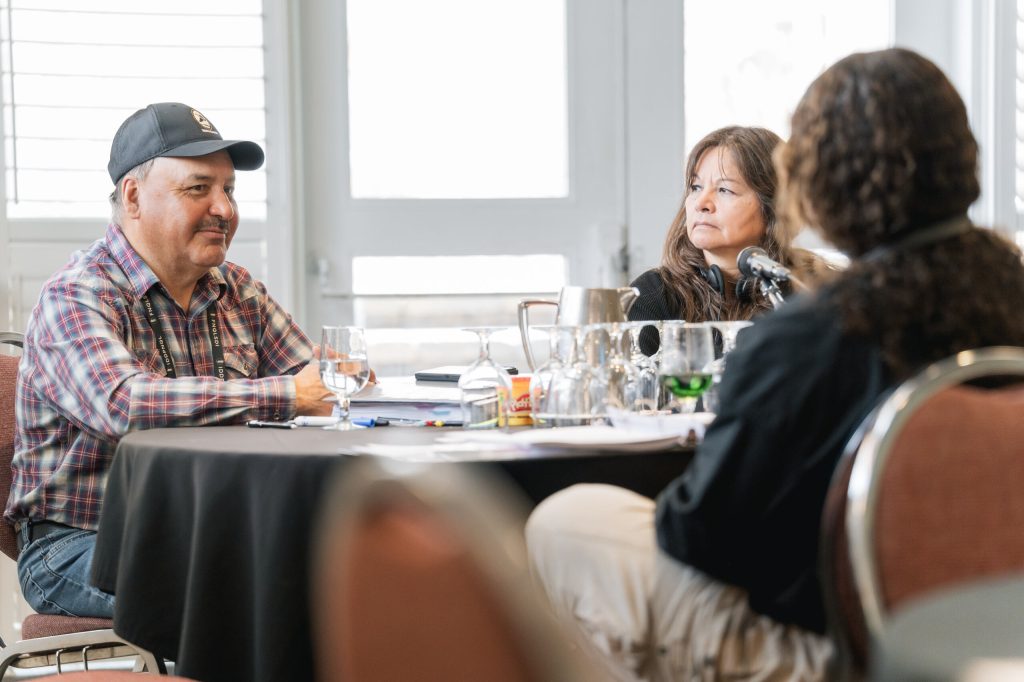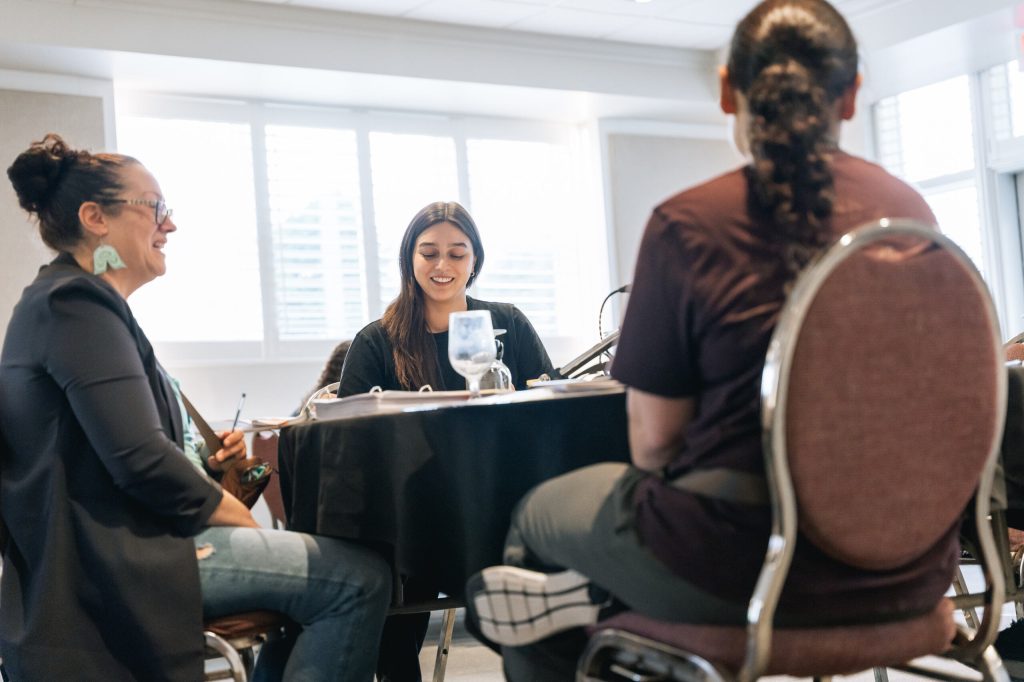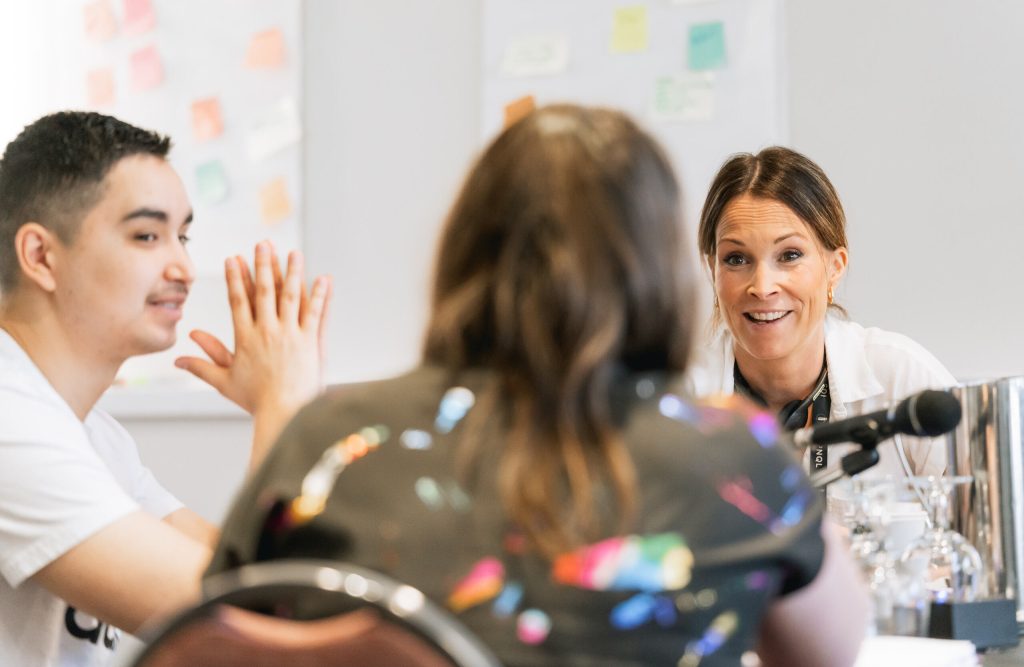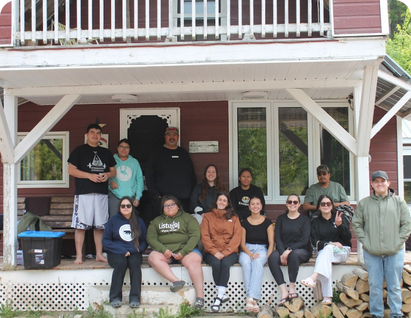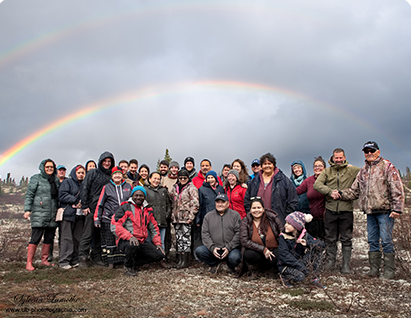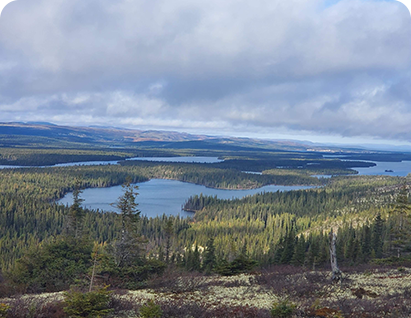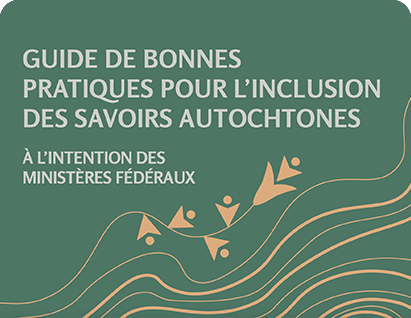Spreading the word – Training in community planning
Since 2018, our team has been involved in a working group developing Comprehensive Community Planning (CCP) training content.
Made up of people from all over the land, the group has created two training courses: a 5-day intensive camp for people new to planning, and a 3-day workshop for experienced people who want to become CCP trainers.
Community Planning Intensive Camp – November 22 to December 10, 2021
We organized our first intensive camp in 2021. Due to the pandemic, the camp took place entirely online, from November 22 to December 10. The facilitation team consisted of Karonhiénhawe Linda Delormier, Suzy Goodleaf, Catherine Béland and Jeff Cook. Seven Elders and 8 guest experts from different Nations generously supported the team. The training offered participants a space to strengthen their skills, better understand their work context and role, identify their strengths and explore numerous tools and resources.
The 17 participants, representing 10 First Nations, received nearly 50 hours of training. Key aspects of a community planning process in an indigenous context were covered: creating safe spaces, rooting the process in culture and language, exploring the planning stages, mobilizing the community, clarifying roles and responsibilities, creating a planning team, facilitating online and face-to-face, etc.
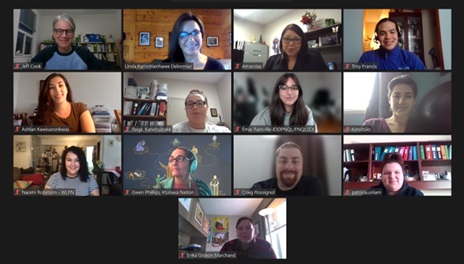
Interregional cohort of trainers
We brought together the first interregional cohort of indigenous community planning trainers. From May 6 to 8, 2024, the 12 participants successfully completed an intense course co-facilitated by Karonhienhawe Linda Delormier (Kahnawà:ke, Tionhnhí:io), Jeff Cook (Beringia Community Planning) and Catherine Béland (FNQLSDI).
In teams, they covered the key aspects of training: culture and identity, workshop creation and facilitation, group dynamics, trauma-informed practices, collaboration and teamwork, teaching and learning approaches, and more. They were able to integrate the content and teach it themselves, based on their own strengths and vision of the world.
Photo credit: Dany Forget
We are honoured to have been able to contribute to the journey of these 12 fantastic community planning trainers: Amanda Simon (Kanehsatà:ke), Tewateronhiákhwa Brandyce Barnes (Kahnawà:ke), Colleen Jacob (St’át’imc), Daphne Googoo (Wagmatcook), Daren Germain (Mashteuiatsh), Émie Rainville (Pessamit), Kaiatiio Barnes (Kahnawà:ke), Kimberly Chevrier (Kebaowek), Kimberly Roy (Abitibi8inni), Marie-Eve Bouchard (Essipit), Michelle MacEwan (Membertou) and Roy Weistche (Waskaganish).
In their own words, here’s what the training has done for them:
Gratitude
Thank you to our Elders and mentors, for their vision and unwavering confidence. Thank you to Red Circle Planning Group and Aboriginal Services Canada, for supporting and funding the projects. Finally, a huge thank you to our training participants, for their commitment to making planning a tool for self-determination, self-sufficiency and healing, for themselves and their communities.
